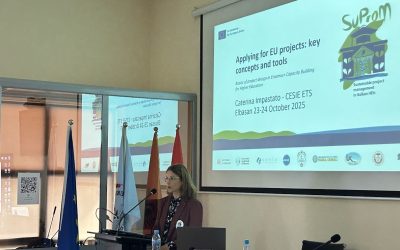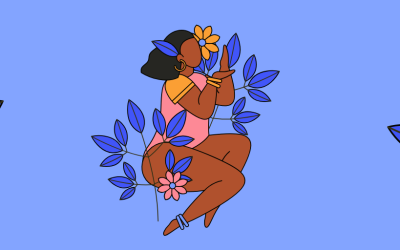Addressing gender-based violence and teen dating violence means creating safe and inclusive spaces where young people can express themselves, be heard, and take part in change. Open dialogue, education, and care become essential tools to foster inclusion and awareness, strengthening the active role of the younger generations.
As autumn painted the trees of Druskininkai, Lithuania gold and amber, almost 50 people – experts, members of the Youth Advisory Board, and Bottom-Up Talks project staff from Italy, Greece, Cyprus, Lithuania, and France – gathered for a Training for Experts and the International Youth Advisory Board (YAB) Camp.
The three-day Training for Experts brought together 15 professionals working across education, psychology, and youth services, who will be involved in the implementation of the Bottom-Up Talks counselling desks for young people, families and educators. During sessions full of learning and food for thought, they explored the implementation framework and psychological support tools, as well as methods for how to prevent and respond to gender-based violence.
Beyond the theory, they shared their experiences, reflected on joint challenges and solutions, and embodied empathy and connection – making the training unique for its emotional depth.
Running alongside the training for experts, the Youth Advisory Board Camp gathered 20 inspiring young people from five countries – each with their own story, curiosity, and drive to make a difference.
The camp started with creative icebreakers and team-building activities that helped participants discover each other’s “superpowers.” LEGO creations, notebook design, and playful challenges created a spirit of unity and trust.
As the days unfolded, discussions deepened. In the session “From Token to Taken Seriously,” young people explored what genuine youth participation means, moving beyond symbolic inclusion towards real influence and ownership. The workshop “Let’s Talk About Everything!” demystified Comprehensive Sexuality Education (CSE) through games, storytelling, and group reflection, showing that CSE is not just about biology – it’s about relationships, identity, respect, and emotional wellbeing.
The young people practised empathy, active listening, and the art of holding space for others, before turning their insights into concrete peer education initiatives – designing workshops, campaigns, and school activities they can lead in their own communities.
They also took part in activities such as ImproGym, where participants explored the power of improvisation and movement in understanding youth emotions and communication. Finally, a soap-making workshop gave them the chance to craft soaps that captured the “smell of the event” – a symbolic act representing their collective journey of shared growth, courage, and creativity.
Participants left not only with new knowledge and plans, but with renewed purpose, strong of the belief that change doesn’t just come from the top, but grows powerfully from the bottom up.
Together, the experts and young leaders are shaping a new narrative, one where Comprehensive Sexuality Education and mental health support are not taboo topics, but essential foundations for safety, equality, and wellbeing. Only then can educational settings be more caring, informed, and inclusive.
This is not the end! The Bottom-Up Talks project is about to launch counselling desks in schools and other places, as well as peer-education activities for trained young people to put their knowledge in practice. Stay tuned for updates!
About BOTTOM-UP TALKS
BOTTOM-UP TALKS – Preventing teen-dating and school-related gender-based violence and promoting psychological well-being from the bottom-up is funded by CERV-2024-DAPHNE programme.
Partners
- CESIE ETS (Italy, Coordinator)
- C.O.I.R.A.G. ETS – Confederazione di Organizzazioni Italiane per la Ricerca Analitica sui Gruppi (Italy)
- KMOP – Kentro Merimnas Oikogeneias Kai Paidiou (Greece)
- CSI – Center for Social Innovation (Cyprus)
- House of Diversity Education (Lithuania)
- FEA – Femmes Entraide et Autonomie (France)
For further information
Read more on the project fact sheet, visit www.thegendertalk.eu, follow as on Facebook and Instagram.
Contact Ruta Grigaliunaite: ruta.grigaliunaite@cesie.org.








